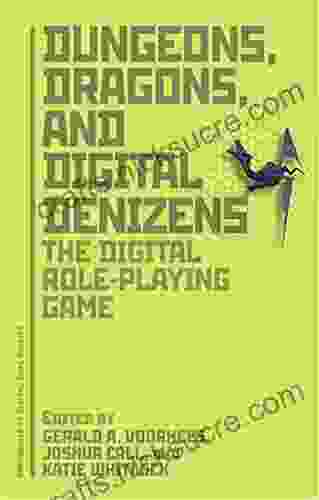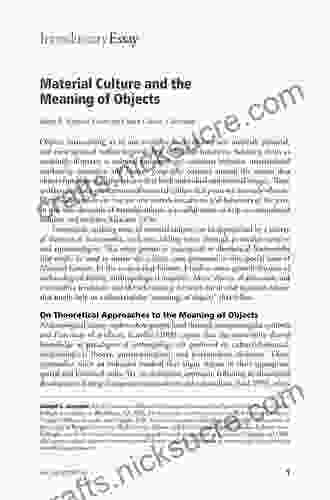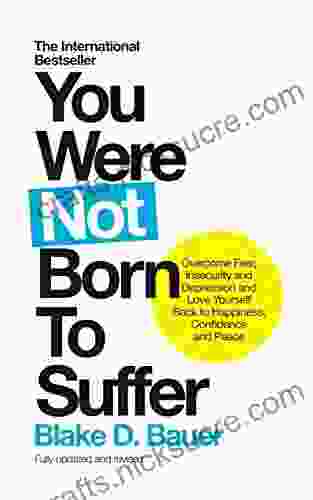Heuristic Research Design Methodology: Unlocking the Power of Intuitive Discovery

4.5 out of 5
| Language | : | English |
| File size | : | 760 KB |
| Text-to-Speech | : | Enabled |
| Screen Reader | : | Supported |
| Enhanced typesetting | : | Enabled |
| Word Wise | : | Enabled |
| Print length | : | 136 pages |
In the labyrinthine landscape of research methodologies, Heuristic Research Design emerges as a beacon of intuition and insight, guiding researchers towards uncharted territories of discovery. This qualitative approach embraces the power of human judgment and subjective experience to unearth hidden patterns, illuminate complex phenomena, and generate novel solutions to pressing problems.
Defining Heuristic Research
Derived from the Greek word "heuriskein," meaning "to find," heuristic research encompasses a range of techniques that harness the researcher's expertise, creativity, and experience to inductively explore and interpret research data. Unlike deductive methods that test pre-defined hypotheses, heuristic research allows for a more open-ended and exploratory approach, where insights emerge from the data itself.
Key Characteristics of Heuristic Research
- Reliance on Intuition: Heuristic research places a premium on the researcher's intuition and subjective judgment, considering them valuable sources of insight and understanding.
- Inductive Reasoning: Data analysis in heuristic research follows an inductive approach, where patterns and themes are identified through observation and interpretation, rather than statistical analysis.
- Exploratory Nature: This methodology is particularly suited for exploratory research, where the goal is to gain a deeper understanding of a phenomenon or generate new ideas.
- Focus on Context: Heuristic research acknowledges the importance of context and strives to interpret data in relation to the specific circumstances in which it was gathered.
Applications of Heuristic Research
The versatility of heuristic research extends across a wide spectrum of disciplines, empowering researchers in diverse fields to uncover hidden truths and drive innovation:
1. Human-Computer Interaction (HCI) and User Experience (UX)
Heuristic research methods, such as Cognitive Walkthrough and Expert Evaluation, are extensively used in HCI and UX research to assess the usability and user experience of digital products.
2. Ethnography
Heuristic research techniques, such as participant observation and qualitative interviews, provide valuable insights into cultural practices, social interactions, and lived experiences, enriching ethnographic research.
3. Exploratory Marketing Research
Heuristic research can assist marketing professionals in understanding consumer behaviors, identifying market opportunities, and developing innovative marketing strategies.
4. Education Research
This methodology enables educators to explore teaching methods, assess student learning, and devise educational interventions that cater to diverse learning styles and needs.
5. Healthcare Research
Heuristic research techniques, such as focus groups and usability testing, contribute to the development of user-centered healthcare technologies and improve patient experiences.
Advantages of Heuristic Research
- Uncover Hidden Patterns: Heuristic research excels at identifying subtle patterns and relationships that may not be apparent through quantitative analysis.
- Generate Novel Ideas: This methodology encourages creative thinking and fosters the generation of innovative ideas and solutions.
- Provide Contextual Understanding: Heuristic research emphasizes the importance of context, allowing researchers to gain a deeper understanding of the phenomenon under investigation.
- Facilitate Rapid Exploration: Compared to quantitative methods, heuristic research often involves smaller sample sizes and less structured data collection, enabling researchers to conduct rapid exploratory studies.
Challenges of Heuristic Research
- Subjectivity: The reliance on the researcher's intuition and subjective judgment can introduce potential biases into the research process.
- Generalizability: Findings from heuristic research may not be easily generalizable to a broader population due to the small sample sizes and qualitative nature of the data.
- Validity: Establishing the validity of heuristic research findings can be challenging, as there may not be clear and objective criteria for assessing their accuracy.
- Researcher Training: Heuristic research requires researchers to possess strong analytical and interpretive skills, which may necessitate specialized training.
Best Practices for Conducting Heuristic Research
- Define Clear Research Objectives: Clearly articulate the specific goals and questions that the research aims to address.
- Select Appropriate Methods: Choose heuristic research techniques that are well-suited to the research objectives and the nature of the data being collected.
- Ensure Researcher Training: Train researchers on the principles and techniques of heuristic research to minimize biases and enhance the quality of data interpretation.
- Document the Research Process: Meticulously document the research design, data collection methods, and analytical procedures to ensure transparency and reproducibility.
- Triangulate Findings: Combine heuristic research techniques with other qualitative or quantitative methods to enhance the validity and reliability of the findings.
Heuristic Research Design Methodology empowers researchers to harness the power of human intuition and subjective experience to uncover hidden truths and generate innovative solutions. While this approach offers unique advantages in exploratory research and qualitative data analysis, it is essential to acknowledge potential challenges and adhere to best practices to ensure the validity and reliability of the findings. By embracing the principles of heuristic research, researchers can unlock a world of discovery, illuminating the complexities of human behavior and driving progress in diverse fields.
4.5 out of 5
| Language | : | English |
| File size | : | 760 KB |
| Text-to-Speech | : | Enabled |
| Screen Reader | : | Supported |
| Enhanced typesetting | : | Enabled |
| Word Wise | : | Enabled |
| Print length | : | 136 pages |
Do you want to contribute by writing guest posts on this blog?
Please contact us and send us a resume of previous articles that you have written.
 Fiction
Fiction Non Fiction
Non Fiction Romance
Romance Mystery
Mystery Thriller
Thriller SciFi
SciFi Fantasy
Fantasy Horror
Horror Biography
Biography Selfhelp
Selfhelp Business
Business History
History Classics
Classics Poetry
Poetry Childrens
Childrens Young Adult
Young Adult Educational
Educational Cooking
Cooking Travel
Travel Lifestyle
Lifestyle Spirituality
Spirituality Health
Health Fitness
Fitness Technology
Technology Science
Science Arts
Arts Crafts
Crafts DIY
DIY Gardening
Gardening Petcare
Petcare Christophe Jaffrelot
Christophe Jaffrelot Michael Crawley
Michael Crawley Charles Fernyhough
Charles Fernyhough Rex Ogle
Rex Ogle Og Mandino
Og Mandino Dawson Church
Dawson Church Sharon Boyd
Sharon Boyd R L Stine
R L Stine Adam H Balen
Adam H Balen Elena Aguilar
Elena Aguilar Aaron Lee Johnson
Aaron Lee Johnson Al Baird
Al Baird Abinash Das
Abinash Das Dan Morris
Dan Morris Kaylynn Flanders
Kaylynn Flanders Fumio Sasaki
Fumio Sasaki Stuart Firestein
Stuart Firestein Laurence Steinberg
Laurence Steinberg Scott Parsons
Scott Parsons Jeremy Shinewald
Jeremy Shinewald Linford Stutzman
Linford Stutzman Felice Fox
Felice Fox Steve Mcmenamin
Steve Mcmenamin Rania Abouzeid
Rania Abouzeid Aaron Graves
Aaron Graves Andrew Skurka
Andrew Skurka James Heberd
James Heberd Meg Keys
Meg Keys Barbara Fox
Barbara Fox John Hancock
John Hancock Michel Roy
Michel Roy Kristin Berry
Kristin Berry Richard Langer
Richard Langer Martha C Nussbaum
Martha C Nussbaum Katie Lear
Katie Lear Charlie Barker
Charlie Barker Abby Hafer
Abby Hafer Seth Kugel
Seth Kugel Terry Palechuk
Terry Palechuk Laurie Chaikind Mcnulty Lcsw C
Laurie Chaikind Mcnulty Lcsw C William Hamilton Gibson
William Hamilton Gibson M J Parisian
M J Parisian Adam Braus
Adam Braus Lin Wellford
Lin Wellford Brian Hoggard
Brian Hoggard Reinette Biggs
Reinette Biggs Randi Hutter Epstein
Randi Hutter Epstein Kel Carpenter
Kel Carpenter Moon Ho Jung
Moon Ho Jung Stephen Brennan
Stephen Brennan Abigail Hair
Abigail Hair William Deresiewicz
William Deresiewicz Lindsey Ellison
Lindsey Ellison Abu Mussab Wajdi Akkari
Abu Mussab Wajdi Akkari Programming Languages Academy
Programming Languages Academy James Surowiecki
James Surowiecki John D Gordon
John D Gordon Stephen R Lawhead
Stephen R Lawhead Paul Schneider
Paul Schneider Clara Shaper
Clara Shaper Robert Fritz
Robert Fritz Adam Koch
Adam Koch Drew Harris
Drew Harris Dmv Test Bank
Dmv Test Bank Jeff Bauman
Jeff Bauman Pamela Druckerman
Pamela Druckerman Ann Frederick
Ann Frederick Rob Gray
Rob Gray Stephen Gray
Stephen Gray Laura Peyton Roberts
Laura Peyton Roberts Adam Enaz
Adam Enaz Aaron Reed Msn Crna
Aaron Reed Msn Crna Garo Yepremian
Garo Yepremian Tim Jarvis
Tim Jarvis Susan Zeppieri
Susan Zeppieri Tony Soper
Tony Soper Jane Gross
Jane Gross Adam J Cox
Adam J Cox Winifred Conkling
Winifred Conkling Arthur Turrell
Arthur Turrell Man Kam Lo
Man Kam Lo Alvin Alexander
Alvin Alexander Sheri Van Dijk
Sheri Van Dijk Louise Thaden
Louise Thaden Susan Walton
Susan Walton Debbie Ford
Debbie Ford David Lipsky
David Lipsky Christian Beamish
Christian Beamish Ken Springer
Ken Springer Alicia C Simpson
Alicia C Simpson Ada Calhoun
Ada Calhoun Gisle Solhaug
Gisle Solhaug Amber Fox
Amber Fox Ryan Smithson
Ryan Smithson Linda Sarris
Linda Sarris Dick Edie
Dick Edie Aaron J Perry
Aaron J Perry George J Hademenos
George J Hademenos Michael Gruenbaum
Michael Gruenbaum Ilsa J Bick
Ilsa J Bick Mary Roach
Mary Roach Arthur Atchabahian
Arthur Atchabahian Rolf Mowatt Larssen
Rolf Mowatt Larssen Sophie Mccartney
Sophie Mccartney Aaron Oster
Aaron Oster Adam Galinsky
Adam Galinsky Ronald Kaine
Ronald Kaine T L Christianson
T L Christianson Brian L Gorman
Brian L Gorman Casey Robson
Casey Robson Amby Burfoot
Amby Burfoot Andrew Campanella
Andrew Campanella Wayne Westcott
Wayne Westcott Michael Johnson
Michael Johnson Ron Hotchkiss
Ron Hotchkiss Roman Dial
Roman Dial Scott Carney
Scott Carney Bill Mckibben
Bill Mckibben Gregor Clark
Gregor Clark Emily Suzanne Clark
Emily Suzanne Clark Daniel Carter Beard
Daniel Carter Beard Mark Strom
Mark Strom Stefan Ball
Stefan Ball Emily J Taylor
Emily J Taylor Dan Shideler
Dan Shideler Abigail Owen
Abigail Owen Stephen A Mitchell
Stephen A Mitchell Abby Haight
Abby Haight Shuai Huang
Shuai Huang Carolyn Jessop
Carolyn Jessop Aaron Reed
Aaron Reed Scott Shaw
Scott Shaw Jack Cavanaugh
Jack Cavanaugh Andrea M Nelson Royes
Andrea M Nelson Royes Lillian Cumic
Lillian Cumic Conrad Bauer
Conrad Bauer Craig Timberg
Craig Timberg Kate Rope
Kate Rope Phil Boyle
Phil Boyle Gil Capps
Gil Capps Tom Mccarthy
Tom Mccarthy Ken Retallic
Ken Retallic Scott Meyers
Scott Meyers Barbara A Lewis
Barbara A Lewis Suzanne Corkin
Suzanne Corkin Abigail Pogrebin
Abigail Pogrebin Zoe Hamlet Silva
Zoe Hamlet Silva Laura Sebastian
Laura Sebastian Pearson Education
Pearson Education Genius Reads
Genius Reads Hans C Ohanian
Hans C Ohanian Pat Chargot
Pat Chargot Gerry Donohue
Gerry Donohue Jeremy Paxman
Jeremy Paxman Joy Neighbors
Joy Neighbors Abigail Melton
Abigail Melton Lois G Schwoerer
Lois G Schwoerer Deborah Madison
Deborah Madison O Thomas Gift
O Thomas Gift Kevin A Morrison
Kevin A Morrison Erik Scott De Bie
Erik Scott De Bie Sheila Lamb
Sheila Lamb Michael Egan
Michael Egan Achille Rubini
Achille Rubini Teresa Finney
Teresa Finney Jon Butterworth
Jon Butterworth Judi Kesselman Turkel
Judi Kesselman Turkel Randy Walker
Randy Walker Zoyla Arana
Zoyla Arana George John Romanes
George John Romanes Peter David
Peter David Christopher S Stewart
Christopher S Stewart Al Desetta
Al Desetta Ed Engle
Ed Engle Domenica Marchetti
Domenica Marchetti Michael L Bloomquist
Michael L Bloomquist Abdelkader Nouiri
Abdelkader Nouiri Marie Cirano
Marie Cirano Adam Benshea
Adam Benshea Helen Scales
Helen Scales Ariana Eagleton
Ariana Eagleton Abigail Marshall
Abigail Marshall Charles C Patrick
Charles C Patrick Gavin D J Harper
Gavin D J Harper Jim Morekis
Jim Morekis Tom Jackson
Tom Jackson Tom Rosenbauer
Tom Rosenbauer Martha Gellhorn
Martha Gellhorn Sheldon Axler
Sheldon Axler Charles Thomas Jr
Charles Thomas Jr Rose Ann Hudson
Rose Ann Hudson Horace Kephart
Horace Kephart Adam Kimelman
Adam Kimelman Dan Werb
Dan Werb Al Yellon
Al Yellon Tali Edut
Tali Edut Stephanie Puglisi
Stephanie Puglisi Lenyfer Garrido
Lenyfer Garrido David G Brown
David G Brown Mark Januszewski
Mark Januszewski Abraham Silberschatz
Abraham Silberschatz Virginia Smith Harvey
Virginia Smith Harvey Steve Griffith
Steve Griffith Carmen Moreno
Carmen Moreno Leigh Bardugo
Leigh Bardugo Gloria Atanmo
Gloria Atanmo Justin Driver
Justin Driver Chiara Giuliani
Chiara Giuliani Irene Lewis Mccormick
Irene Lewis Mccormick Goodman Publishing
Goodman Publishing Peter Harrison
Peter Harrison Christina Hoff Sommers
Christina Hoff Sommers Barbara Natterson Horowitz
Barbara Natterson Horowitz Timothy Phelps
Timothy Phelps Cassandra Eason
Cassandra Eason Allan Sand
Allan Sand Abigail Hing Wen
Abigail Hing Wen Sorin Dumitrascu
Sorin Dumitrascu Barry Robinson
Barry Robinson Thomas Wilson
Thomas Wilson Abbey Curran
Abbey Curran Paul Chiasson
Paul Chiasson Sean Mcmanus
Sean Mcmanus Fred Fields
Fred Fields Katrina Kahler
Katrina Kahler Abigail Tucker
Abigail Tucker Ian Davis
Ian Davis Tim Larkin
Tim Larkin Sam J Miller
Sam J Miller Richard Lighthouse
Richard Lighthouse Shari Eskenas
Shari Eskenas Todd Graves
Todd Graves Sarah Moore
Sarah Moore Lisa Heffernan
Lisa Heffernan Ben Cohen
Ben Cohen Eduardo Duran
Eduardo Duran Cornel West
Cornel West Paul Mclerran
Paul Mclerran Abbas Kazerooni
Abbas Kazerooni Jay Dawes
Jay Dawes Amber Domoradzki
Amber Domoradzki Adam Lashinsky
Adam Lashinsky Tom Migdalski
Tom Migdalski Gary Sakuma
Gary Sakuma Rachael Ray
Rachael Ray Agustin Fuentes
Agustin Fuentes Baba Ifa Karade
Baba Ifa Karade Colin Hunter
Colin Hunter Richelle Mead
Richelle Mead Brian Greene
Brian Greene Achref Hassini
Achref Hassini Hillary Allen
Hillary Allen Brigitte Jordan
Brigitte Jordan Brad Brewer
Brad Brewer Chris Worfolk
Chris Worfolk Kenn Kaufman
Kenn Kaufman G Bailey
G Bailey Douglas W Hubbard
Douglas W Hubbard Jenny Han
Jenny Han Tomi Adeyemi
Tomi Adeyemi Adam Boduch
Adam Boduch Richard Martin
Richard Martin Alan Robertson
Alan Robertson Lavinia Collins
Lavinia Collins Barbara Decker
Barbara Decker Claire Ahn
Claire Ahn Aliza Green
Aliza Green Robert Allans
Robert Allans Cosmas Inyang
Cosmas Inyang Ian Mcleod
Ian Mcleod Sally Clarkson
Sally Clarkson Michael N Mitchell
Michael N Mitchell Adam Freeman
Adam Freeman Sam Jarman
Sam Jarman Jennifer Shannon
Jennifer Shannon Carl Vernon
Carl Vernon Paula Deen
Paula Deen Glen Finland
Glen Finland Michael Baigent
Michael Baigent Rory Miller
Rory Miller Marc Dando
Marc Dando Amelia Whitmore
Amelia Whitmore Chashiree M
Chashiree M Norton Juster
Norton Juster Catherine Ryan Hyde
Catherine Ryan Hyde Gladys Chepkirui Ngetich
Gladys Chepkirui Ngetich Garrett Mcnamara
Garrett Mcnamara Heather Lynn
Heather Lynn Anthony Wilkenson
Anthony Wilkenson Scott Butler
Scott Butler Stephanie Zeiss
Stephanie Zeiss Bobby Reyes
Bobby Reyes Iain Highfield
Iain Highfield Lynn Rush
Lynn Rush Christopher Pike
Christopher Pike Adam D Scott
Adam D Scott Sarah K L Wilson
Sarah K L Wilson P S Page
P S Page Aaron Blight
Aaron Blight Steven Alan Childress
Steven Alan Childress Abridged Ed Edition Kindle Edition
Abridged Ed Edition Kindle Edition Bill Loguidice
Bill Loguidice Richard Sattora
Richard Sattora Barry Dainton
Barry Dainton Devika Primic
Devika Primic Laura Gao
Laura Gao Abby Sunderland
Abby Sunderland Jacob Neumann
Jacob Neumann Vikas Kakwani
Vikas Kakwani Adam Frank
Adam Frank Vivian Gussin Paley
Vivian Gussin Paley Jim Willis
Jim Willis Nancy Mohrbacher
Nancy Mohrbacher Adam Lazarus
Adam Lazarus David Simon
David Simon Christopher Black
Christopher Black Phil Gaimon
Phil Gaimon Phong Thong Dang
Phong Thong Dang Kim Gosselin
Kim Gosselin David Feddes
David Feddes Randall Hyde
Randall Hyde Abhishek V R
Abhishek V R Michelle Hodkin
Michelle Hodkin Gerald A Voorhees
Gerald A Voorhees Liza Angela
Liza Angela Joe Simpson
Joe Simpson Steve Rosenberg
Steve Rosenberg John Kean
John Kean Nick Holt
Nick Holt Debbie Elicksen
Debbie Elicksen Lynn E Ponton
Lynn E Ponton Kathy Koch Phd
Kathy Koch Phd Kayla Cottingham
Kayla Cottingham Aaron Hahn
Aaron Hahn Bathroom Readers Institute
Bathroom Readers Institute Walter Browder
Walter Browder Chaz Scoggins
Chaz Scoggins Natasha Preston
Natasha Preston Charles L Byrne
Charles L Byrne Mary Wong
Mary Wong Chris Jericho
Chris Jericho Abby Mcallister
Abby Mcallister Larry Carpenter
Larry Carpenter Collins Kids
Collins Kids Caroline Kaufman
Caroline Kaufman Abigail Alling
Abigail Alling Jack Moore
Jack Moore Jeremy Miles
Jeremy Miles Renda Dionne Madrigal
Renda Dionne Madrigal David Rensin
David Rensin Lisa Robertson
Lisa Robertson Miranda Kenneally
Miranda Kenneally David Winner
David Winner Sherri Granato
Sherri Granato Mikki Daughtry
Mikki Daughtry Chella Quint
Chella Quint Alexander Nehamas
Alexander Nehamas Sasha Abramsky
Sasha Abramsky Aaron James
Aaron James Maya Lang
Maya Lang Benjamin Roberts
Benjamin Roberts Maxine Levaren
Maxine Levaren Jessica Hepburn
Jessica Hepburn Monica Sorrenson
Monica Sorrenson Emma Crewe
Emma Crewe Eze Ugbor
Eze Ugbor Megan Lane
Megan Lane Jimmy Houston
Jimmy Houston Rachel Caine
Rachel Caine Harley Rustad
Harley Rustad Aiden Thomas
Aiden Thomas John Taylor
John Taylor Claire Santry
Claire Santry Betsy Miller
Betsy Miller Marvin Valerie Georgia
Marvin Valerie Georgia Michelle Obama
Michelle Obama Dr Robert Pasahow
Dr Robert Pasahow Blake D Bauer
Blake D Bauer Miriam Forman Brunell
Miriam Forman Brunell Sissy Goff
Sissy Goff Neil Oliver
Neil Oliver Laura Ray
Laura Ray Christopher Knight
Christopher Knight Kirk Bailey
Kirk Bailey Louise Pickford
Louise Pickford Matt Warshaw
Matt Warshaw Alifya And Umesh Mohite
Alifya And Umesh Mohite J Robert King
J Robert King Tamora Pierce
Tamora Pierce Rosie Pope
Rosie Pope Thubten Yeshe
Thubten Yeshe Jason Korol
Jason Korol Sarah Maslin Nir
Sarah Maslin Nir Abdul Foster
Abdul Foster Sean Lewis
Sean Lewis Israel Finkelstein
Israel Finkelstein Carl Jones
Carl Jones Peter Sagal
Peter Sagal Emily K Neuburger
Emily K Neuburger Charles H Kraft
Charles H Kraft Farah Shabazz Ii
Farah Shabazz Ii Ned Johnson
Ned Johnson Xiuhtezcatl Martinez
Xiuhtezcatl Martinez Gail Buckland
Gail Buckland Robert Reid
Robert Reid Abbi Glines
Abbi Glines Gayle Forman
Gayle Forman Asato Asato
Asato Asato Eugene H Merrill
Eugene H Merrill An American Citizen
An American Citizen Jessie Hartland
Jessie Hartland Shannon Hale
Shannon Hale Andy Couturier
Andy Couturier Daphne Poltz
Daphne Poltz Alicia Silverstone
Alicia Silverstone Matt Owens
Matt Owens Lisa M Schab
Lisa M Schab Papus
Papus David Warriner
David Warriner Brandon Neice
Brandon Neice Elisabetta Viggiani
Elisabetta Viggiani Carley Roney
Carley Roney Irakli Makharadze
Irakli Makharadze Deborah Beck Busis
Deborah Beck Busis Maureen Duffin Ward
Maureen Duffin Ward Lynn Alley
Lynn Alley Uri Bram
Uri Bram Adam Chandler
Adam Chandler Aaron Mahnke
Aaron Mahnke Steve Roper
Steve Roper Ralph Villiger
Ralph Villiger Aaron Mccargo
Aaron Mccargo Annie Nicholas
Annie Nicholas Helen C Rountree
Helen C Rountree Ann Mariah Cook
Ann Mariah Cook Achusim Michael
Achusim Michael Lisa M Given
Lisa M Given Jeremy Roenick
Jeremy Roenick Darrin Bergman
Darrin Bergman Axie Oh
Axie Oh Lisa Latimer
Lisa Latimer Chuck Callaway
Chuck Callaway Rick Sekuloski
Rick Sekuloski Christopher Monahan
Christopher Monahan Jay Ruud
Jay Ruud Tomos Forrest
Tomos Forrest Jennifer L Hunt
Jennifer L Hunt John Caig
John Caig Taylan Hoca
Taylan Hoca Jasna Tuta
Jasna Tuta Jennifer Finney Boylan
Jennifer Finney Boylan Andy Dumas
Andy Dumas Al Barkow
Al Barkow Lucy Letcher
Lucy Letcher Erika Fatland
Erika Fatland Sarah Luddington
Sarah Luddington Melodie M Davis
Melodie M Davis Lee Sandlin
Lee Sandlin Marlene Wagman Geller
Marlene Wagman Geller Jennifer Ackerman
Jennifer Ackerman Corinne Andrews
Corinne Andrews Vince Kotchian
Vince Kotchian Adam Becker
Adam Becker Jennifer Greene
Jennifer Greene Achim K Krull
Achim K Krull Lisa Pineda
Lisa Pineda Winston Chang
Winston Chang Edward J Larson
Edward J Larson Stephen Abbott
Stephen Abbott E P Marcellin
E P Marcellin Vivienne Sanders
Vivienne Sanders Curt Lader
Curt Lader Lucio Russo
Lucio Russo Stacy Eaton
Stacy Eaton T L Lowery
T L Lowery Adam J Rosh
Adam J Rosh Kit Bauman
Kit Bauman Ron Jones
Ron Jones Beth Newell
Beth Newell Kemi Iwalesin
Kemi Iwalesin Bruce Van Brunt
Bruce Van Brunt
Light bulbAdvertise smarter! Our strategic ad space ensures maximum exposure. Reserve your spot today!

 Garrett PowellGuess Live Here Now: An Immersive Way to Explore the World's Most Luxurious...
Garrett PowellGuess Live Here Now: An Immersive Way to Explore the World's Most Luxurious... Jamie BlairFollow ·16.9k
Jamie BlairFollow ·16.9k Charlie ScottFollow ·18k
Charlie ScottFollow ·18k Caleb CarterFollow ·17.5k
Caleb CarterFollow ·17.5k Cason CoxFollow ·18.6k
Cason CoxFollow ·18.6k Clay PowellFollow ·6.4k
Clay PowellFollow ·6.4k Samuel BeckettFollow ·7k
Samuel BeckettFollow ·7k Chad PriceFollow ·4.5k
Chad PriceFollow ·4.5k Anton FosterFollow ·16.1k
Anton FosterFollow ·16.1k

 Doug Price
Doug PriceTracing the Evolution of Modern Psychoanalytic Thought:...
Psychoanalysis, once considered a radical...

 Devin Ross
Devin RossThe Digital Role Playing Game Approaches To Digital Game...
These are just a few of the many...

 F. Scott Fitzgerald
F. Scott FitzgeraldHistory from Things: Essays on Material Culture
History from Things:...

 Percy Bysshe Shelley
Percy Bysshe ShelleyThe Priest Lake Girl and the Cabin of Love: A True Story...
The Murder On...

 Isaiah Powell
Isaiah PowellThe Golf Mystic: Dick Edie's Unconventional Approach to...
In the annals of golf history, the name Dick...
4.5 out of 5
| Language | : | English |
| File size | : | 760 KB |
| Text-to-Speech | : | Enabled |
| Screen Reader | : | Supported |
| Enhanced typesetting | : | Enabled |
| Word Wise | : | Enabled |
| Print length | : | 136 pages |












